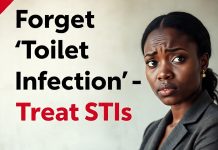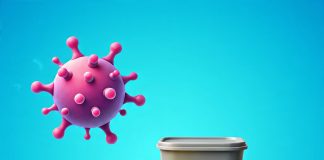The Human Papillomavirus (HPV) vaccine is one of the most important ways to prevent cervical cancer and other HPV-related diseases. Yet, despite its availability and proven effectiveness, many people still have questions about what it does, who should get it, and why it matters. Here’s what you need to know.

What is HPV?
HPV stands for Human Papillomavirus, a group of over 100 related viruses. It is one of the most common sexually transmitted infections in the world. While many HPV infections are harmless and clear up on their own, certain strains can cause serious health problems such as cervical cancer, anal cancer, throat cancer, and genital warts. In fact, nearly all cases of cervical cancer are linked to persistent HPV infection.
What Does the HPV Vaccine Do?
The HPV vaccine protects against the most dangerous strains of the virus, especially those that are known to cause cancer. Rather than treating existing infections, the vaccine works by preventing infection in the first place. It teaches the immune system to recognize and fight off HPV, reducing the risk of developing HPV-related diseases later in life. The most commonly used HPV vaccines include Gardasil and Cervarix, both of which have been shown to be highly effective in preventing infections from the high-risk HPV strains.
Who Should Get the Vaccine?
Experts recommend the HPV vaccine for girls and boys between the ages of 9 and 14, as it is most effective when given before any exposure to the virus. In Nigeria, the vaccine has been made available for free for girls within this age group. However, teenagers and young adults up to age 26 who haven’t been vaccinated can still benefit. In some cases, individuals aged 27 to 45 may also receive the vaccine, depending on their health needs and risk factors. A conversation with a healthcare provider can help determine if it’s right for them.
Why Timing Matters
HPV is transmitted through intimate skin-to-skin contact, not just sexual intercourse. Because people often carry and spread the virus without knowing it, early vaccination offers the best protection. Thus, getting vaccinated before exposure ensures the body can effectively fight off the virus if it is encountered in the future.
Is the HPV Vaccine Safe?
Yes. The HPV vaccine has undergone extensive testing and proven safe. It has been used globally for over a decade with a strong safety record. Like most vaccines, it can cause mild side effects such as arm soreness or low-grade fever, but serious reactions are extremely rare. Leading health authorities, including the World Health Organization (WHO) anñd Centers for Disease Control and Prevention (CDC), the National Ministry of Health endorse its use.
How Many Doses Are Needed?
Children who start the vaccine series between ages 9 and 14 need two doses, given at least six months apart. Those who begin at age 15 or older require three doses for full protection.
A Word from HealthFacts to You
The HPV vaccine is a safe, effective way to protect against several cancers and diseases caused by HPV. It’s most effective when given early but remains beneficial for many young adults. Take an important step to safeguard your health by getting vaccinated today.
Also read: HPV Vaccine: Myths Vs Facts
Subscribe to our newsletter for more updates.









